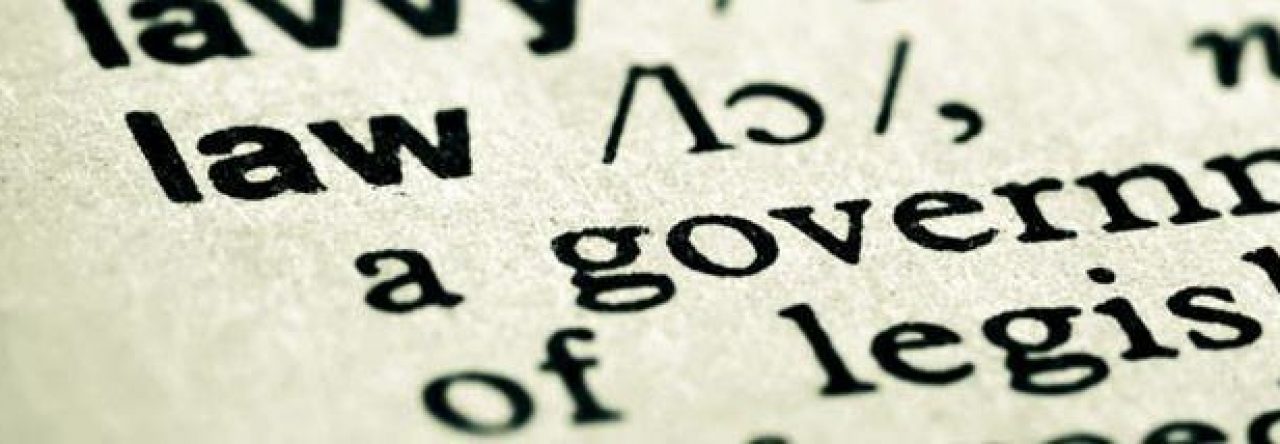After reading Caitlin Moon’s instructive blog Blockchain 101 for Lawyers I commented that we should ‘think of it as a cybernotary who can authenticate — everything’.
I’ve changed my mind.
For the avoidance of doubt, I’m all for catchy analogies. They help understand much of what’s going on in cyberspace. Even better than a catchy analogy, though, is an analogy that’s catchy and apt.
How’s an extremely long chain of data like a notary? Simple: it isn’t. Rather, it’s more like something we know in German as Urkundenrolle (lit. roll of deeds). The roll of deeds of a civil law notary to be more precise. Like so.

Roll of Deeds, Notarial and Legal Instruments
In civil law jurisdictions a notary must keep a recording of every notarial instrument executed by him. This is not a logbook itemising what he has done (the notary will have that as well). Rather, a roll of deeds contains the original notarial instrument itself. When you go to a notary to have something notarised, he will give you an engrossment of the deed. But the original is not for you. The notary will hold on to it.
A notarial instrument is a legal instrument which the relevant parties sign before the notary. The notary signs too, everybody does, all at the same time. A legal instrument is a written document that can be formally attributed to its author and that records and formally expresses a legally enforceable act, process, or contractual duty, obligation or right, thus evidencing that act, process, or agreement.
Signing a legal instrument before a notary has the following legal effects. Law—
-
Decrees that the date of a notarial instrument is fixed and unalterable;
-
Presumes that the content of a notarial instrument is of integrity;
-
Gives a notarial instrument self-authenticating and probative value. This means a notarial instrument establishes proof in court (even though it may be admissible to prove that the transaction contained in it has been recorded improperly).
Our ancestors could have referred to a notarial instrument as a ‘block’ and to the consecutive order of these blocks as a ‘chain’. But they haven’t. They’ve chosen to call them ‘deed’ and ‘roll of deeds’ instead.
Blockchain, the Cyber Roll of Deeds
Caitlin described blockchain as a distributed ledger or register of digitally recorded and encrypted data in the form of blocks. Indeed this ledger aspect is one of the prominent features of blockchain and thus mentioned frequently. But we could also refer to blockchain as one big-ass, worldwide roll of deeds. Without that one notary, mind.
Seen from this angle, ye olde notaries’ rolls of deeds seem like a precursor striving to come close to what blockchain can do for privacy and authenticity today by using the best possible means at the time: law. This traditional way suffered from shortcomings. Some of which had to do with preserving deeds made of paper, drawstring and wax, with ensuring constant access to these documents, and with the issue of proclaiming that some kind of legal sanctity was inherent in them.
Assuming that blockchain continues to be hack-resistant, we can overcome these shortcomings. In particular, law need not decree with all its might that the date of a block in the blockchain is deemed fixed and unalterable. Because it is. And law need not establish the assumption that the content of a block in the blockchain is of integrity. Because again, it just is.
Code is law.
That covers numbers 1 and 2 above, but how about number 3? Indeed to date law does not assign self-authenticating and probative value to blocks in the blockchain. At least I haven’t heard of that yet. It may happen down the road, however, as states – these polities of the physical world – adopt the technology (see Caitlin’s reference to Sweden considering the blockchain-isation of its land registry). The question is to which extent lawmakers will deem it necessary after all to grant this legal privilege to data which is authentic and of integrity in fact.
What about the (Cyber) Notary?
Blockchain technology opens up new possibilities which can’t be pursued using old-school Urkundenrollen or conventional ledgers or registers. But replacing traditional ways of recording transactions doesn’t mean one should do away with the notary as well. Just as one shouldn’t throw the baby out with the bath water.
This is not a call for every blockchain transaction to be recorded by a human notary, of course. It’s a call for smart contract and other blockchain thought leaders to be aware of the purposes of traditional legal form requirements and, where applicable, to put them into effect on blockchains too.
The notarial recording of a legal transaction is the strictest legal form requirement. Law prescribes it in special cases which, in the eyes of the lawmaker, necessitate high levels of precaution. For example transfers of real estate. In those cases, the need to involve a notary serves a number of purposes. Among others it’s the notary’s duty to warn and advise, thereby protecting the parties against making hasty decisions and other mistakes on the way. A roll of deeds alone, whether physical or cyber, can’t do that.


Leave a Reply